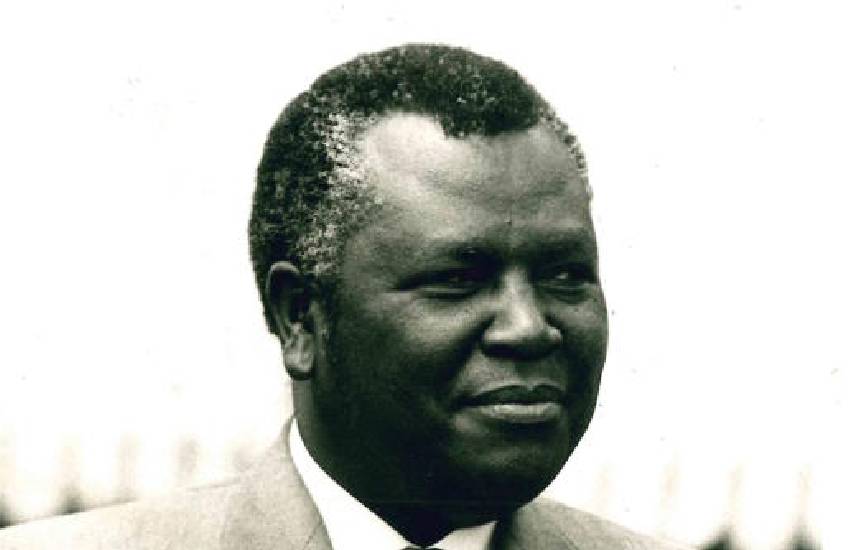
He was Kenya’s longest-serving spy, the most elusive and dreaded. He was part of all major political events that shaped Kenya, for better or worse. But for the 27 years he headed the Directorate of Security Intelligence (‘Special Branch’), the public never knew how burly James Kanyotu looked - from 1965 until his retirement in 1991.
Read Also: James Kanyotu’s 14-bedroom fortress in Kiambu
Media houses had no photo of Kanyotu until he was forced to testify during the Goldenberg Commission of Inquiry in 2004 into how Kenya lost over Sh60 billion through Goldenberg International, where he was a director alongside Kamlesh Pattni. The Special Branch is today known as the National Security Intelligence Service (NSIS), which was established in 1998 and moved from Nyati House along Loita Street, Nairobi, to Kiambu Road.
Born in 1936 in Kirinyaga District, Kanyotu attended Alliance High School and Makerere University for a diploma in teaching. Three months as a teacher and shortly as a journalist, Kanyotu switched careers in 1960 when he joined the police force as an inspector of police Grade 1. Five years later, he became deputy head of intelligence and took over from Bernard Hinga- Kenya’s first spy chief - and remained so until 1991.
Kanyotu remained reclusive throughout his life, even when his Special Branch had the powers to interrogate, arrest and prosecute through planting informers and moles in every government sphere. In fact, the military was infiltrated by spies at his suggestion, which was how the coup plotters against Jomo Kenyatta in 1971 and retired President Moi in 1981 were stopped. But despite staying awake for 72 hours to prevent the August 1, 1982 coup attempt, it still happened.
Kanyotu had approached Moi during the Nyeri Show that Friday in 1982 seeking orders to arrest the coup plotters at the Kenya Air Force. Moi refused. Kanyotu, a policeman, could not arrest military officers. Could he wait until Monday for military police to do the job? Tough luck. The August 1, 1982 coup happened that Sunday! If Kanyotu had his way, Kenya’s history would have been different.
Read Also: Why no female soldier was ever arrested over the 1982 coup
While Moi shuffled, sacked and removed security chiefs after the coup, Kanyotu was never touched and went on to institutionalise fear as a tool of social-political management, turning the Special Branch into the most dreaded security organ. James Kanyotu’s billion-shilling estate encompassing interests in real estate, security, hospitality, agriculture, property, banking and aviation, has seen his family fight for it out in court following his death at the age of 70 in 2006.
 The Standard Group Plc is a multi-media organization with investments in media
platforms spanning newspaper print
operations, television, radio broadcasting, digital and online services. The
Standard Group is recognized as a
leading multi-media house in Kenya with a key influence in matters of national and
international interest.
The Standard Group Plc is a multi-media organization with investments in media
platforms spanning newspaper print
operations, television, radio broadcasting, digital and online services. The
Standard Group is recognized as a
leading multi-media house in Kenya with a key influence in matters of national and
international interest.
